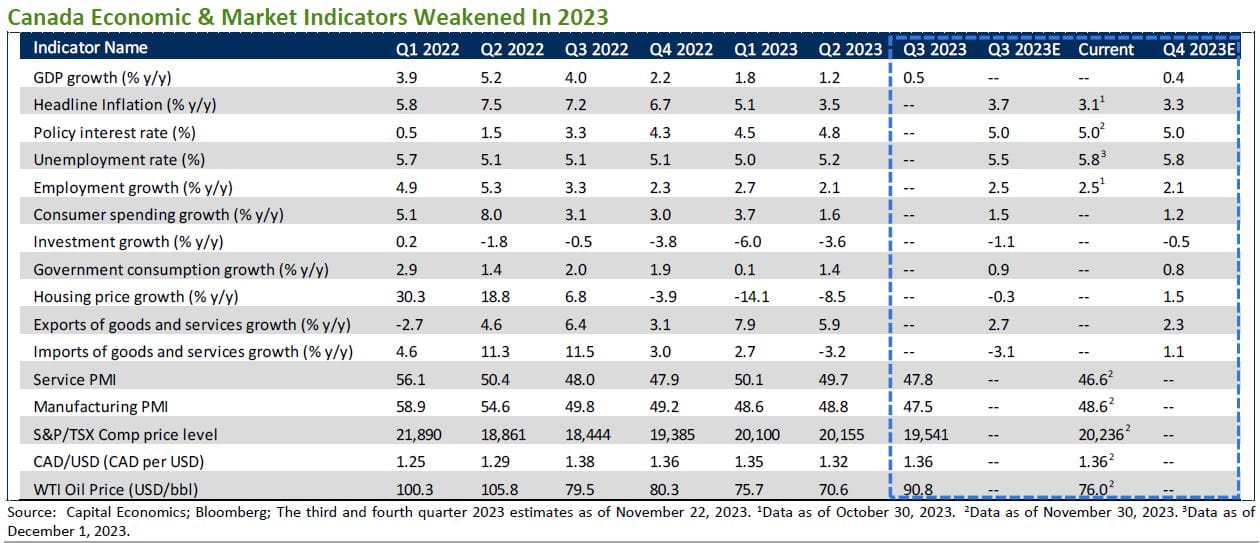Insights and Strategies
Recapping 2023
As we enter the final month of 2023, it seems that the recessions that we have been waiting for might finally arrive. The table below reveals that most key economic indicators are now signaling a downturn in Canada when compared to 2022. Central banks have been using monetary policy to slow economies with the goal of driving inflation down to their two per cent targets. Achieving this goal without tipping the economy into recession is like threading a needle – achievable, but difficult – and we believe that both Canada and the U.S. will go through recessions in the first half of 2024. The good news is that we have some confidence that these recessions might be some of the mildest on record – they’ve certainly been among the most anticipated.
It’s worth reminding readers that in Canada, while the Bank of Canada (BoC) or finance minister might relay an official recession call based on Statistics Canada data, it is the C.D. Howe Institute’s Business Cycle Council that helps to determine economic cycle and recession dates. While some simplify the determination to two consecutive quarters of GDP contraction, the true determination involves judging the amplitude, duration, and scope of a decline in economic activity.
There has been some notable progress in taming inflation this year. In Canada, headline inflation decreased from 8.1 per cent in June 2022 to 2.8 percent in June 2023 before rebounding slightly to 4.0 per cent, with the last reported October rate dipping back down to 3.1 per cent. We expect the path to 2 per cent to remain choppy. The BoC is expecting sticky inflation, averaging 3.5 per cent through mid-2024 before gradually easing to the 2 per cent target in 2025. This trajectory is of particular interest, as it affects the BoC’s decision to maintain interest rates at the current high level, suppressing spending, to ensure that we continually pressure inflation down to that target. There is always a slight chance that a resurgence of inflation prompts another rate hike, and if the recession has a more severe impact, particularly on employment, we could see an earlier move to lower rates, but the most likely scenario is that the recession impact remains mild and that the BoC will only start lowering rates towards the end of 2024, as the path to the 2 per cent target is firmed up.

